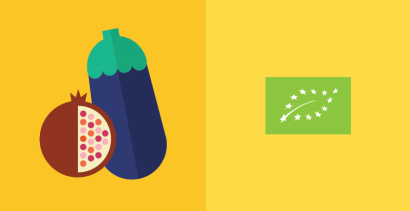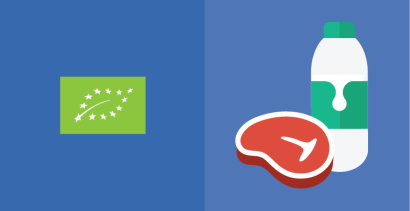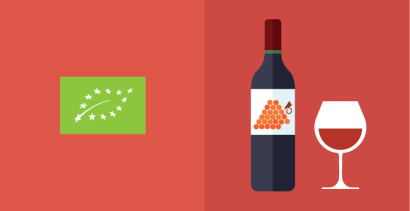Organic food legislation – should we trust the logo?
Last Updated : 23 January 2019The EU organic logo, while being well recognised by consumers, does not inspire a high degree of trust, as shown by research carried out by the EU-funded project Strength2Food.1 This lack of trust is largely due to poor knowledge on how the organic production system works. This article answers some questions about how the system of organic production is managed in Europe as a whole, and in the Member States.
Who is responsible for managing the organic food production in the EU?
The European Commission
The Directorate-General for Agriculture and Rural Development (DG AGRI) is responsible for developing and managing policies on organic food production in Europe. DG AGRI manages the Regulatory Committee on Organic Production, which includes representatives from Member States, as well as an Expert Group for Technical Advice.
Carrying out official controls on organic production is the responsibility of the Directorate-General for Health and Food Safety (DG SANTE). To ensure that organic food production is harmonised throughout Europe, DG SANTE evaluates whether Member States follow the rules for organic food production .
Member States
Although the law and policies around organic production are developed at the EU level, individual Member States are responsible for setting up control systems that monitor adherence to standards.2 Member States can choose to set up public, private, or mixed control systems. According to EU legislation, control bodies must have the expertise, equipment, and infrastructure to ensure correct functioning of the organic system. At least once a year, national regulatory authorities inspect organic producers, and act when standards are not met. At present, there are 250 public and private control organisations which oversee organic production across the EU.3
Are imports regulated?
Organic foods produced outside Europe are often found on shelves of supermarkets and increasingly in outdoor markets as well. To be able to sell products under the label of ‘organic’, exporting countries must integrate EU organic principles and production rules in their regulations. Moreover, control and monitoring need to be equivalent to those applied across the EU. Argentina, Australia, Canada, Costa-Rica, Chile, India, Israel, Japan, Switzerland, Tunisia, United States, New Zealand, and the Republic of Korea have agreements with the European Commission regarding import of organic products into the EU and, on an annual basis, submit detailed reports about their organic production systems. 4, 5
What happens in case of non-compliance?
If an organic producer fails to comply with organic production rules, control authorities ensure products are withdrawn or repackaged without the organic label and are not marketed as such.6 If a producer disregards the rules repeatedly, they may be banned from selling organic food products in the EU.
References
- Hartmann M, et al. (2018). Quantitative research findings on European consumers’ perception and valuation of EU food quality schemes as well as their confidence in such measures. Strength2Food Project.
- EC Regulation 834/2007. Council Regulation 834/2007/EC of 28 June 2007 on organic production and labelling of organic products. Official Journal of the European Union L189, 20.07.2007:1-23.
- The European Commission (2015). List of Control Bodies and Control Authorities in the Organic Sector.
- EC Regulation 1235/2008, Annex III. Commission Regulation 1235/2008/EC of 8 December 2008 laying down detailed rules for implementation of Council Regulation (EC) No 834/2007 as regards the arrangements for imports of organic products from third countries.
- European Court of Auditors (2018). Background paper on Organic Food in the EU. Luxembourg City, Luxembourg.
- EC Regulation 834/2007. Council Regulation 834/2007/EC of 28 June 2007 on organic production and labelling of organic products. Official Journal of the European Union L189, 20.07.2007:1-23.



